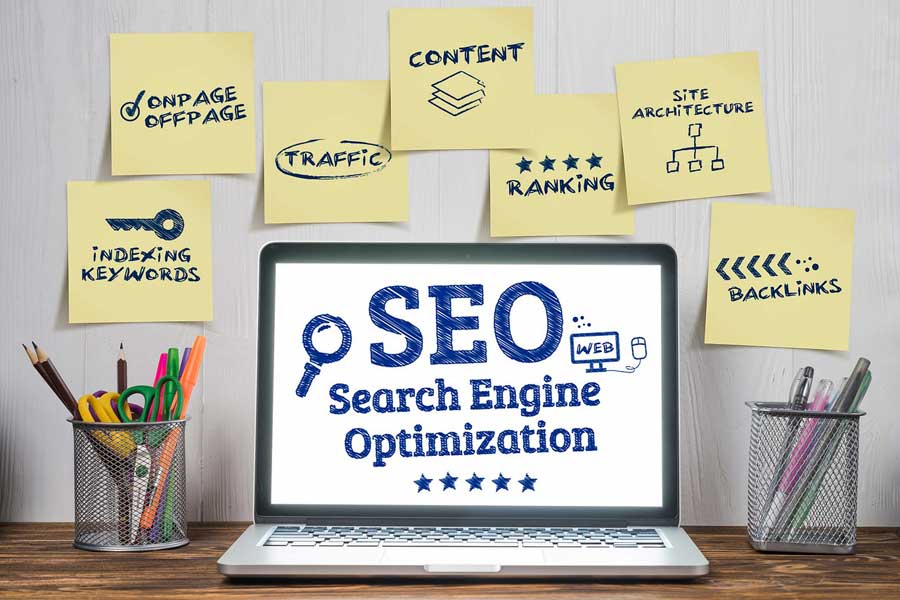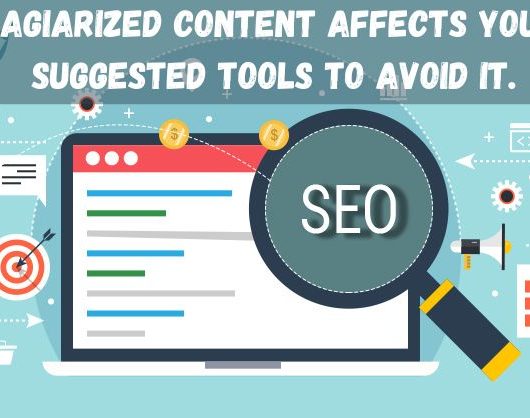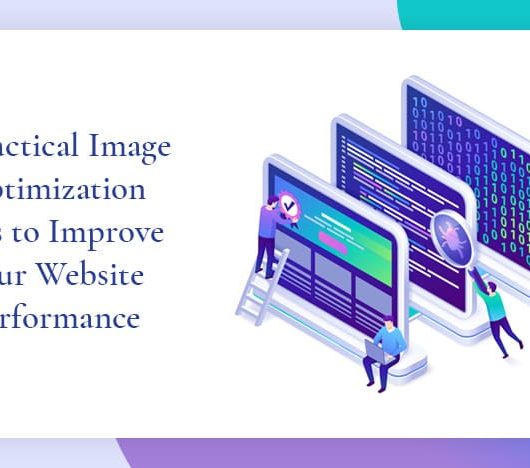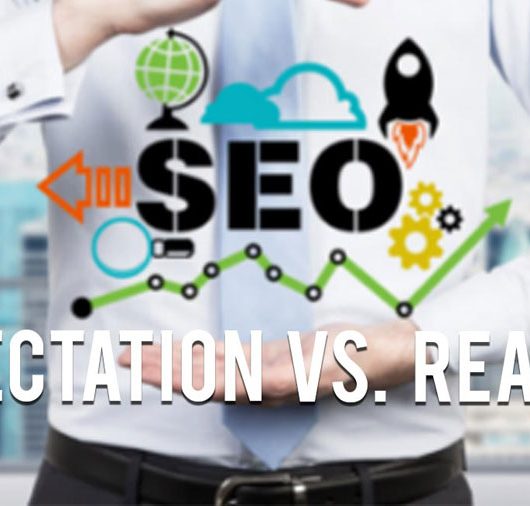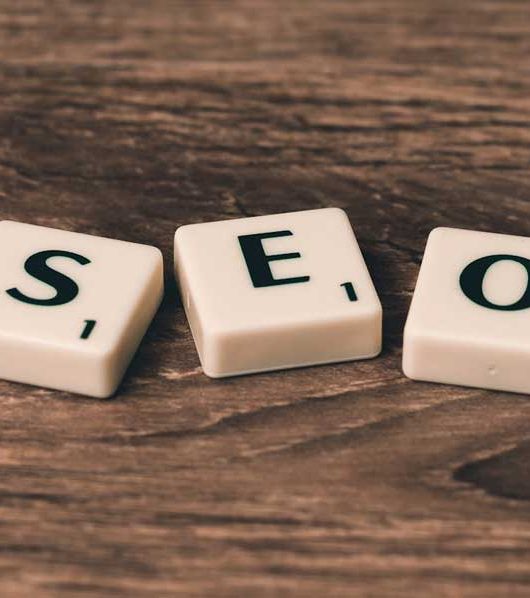Image by Diggity Marketing from Pixabay
Starting a new website can be very exciting. You would surely want people to find your website, read your content, explore your services, and even buy from you.
An important thing to understand is that search engines play a big role in bringing visitors to your website. If your website is not up to the mark and is not set up correctly, Google and other search engines will not show it to the relevant audience.
This is why search engine optimization, commonly known as SEO, is extremely important.
SEO is actually the practice of improving your website in a way that it is understood and liked by Google. With the right tools and professional assistance, you can easily optimize your website. But a big problem is that many rookies end up making small mistakes that would not just damage seo efforts but would stop their sites from growing.
If you’re creating a new website or blog, you must read this guide, as we are going to discuss in detail the top seven seo mistakes new websites make and will also show you how to avoid them.
Let’s start with the first one….
1. Not Doing Any Keyword Research
Many new bloggers or website owners/managers would write whatever comes to their mind without checking and understanding what people are actually searching for. This means they would publish articles that no one is looking for, which would result in loss of resources and domain authority.
Without proper keyword research, there is no way you can find out what your audience is interested in, and you can surely not write content that would satisfy their search intent.
How to avoid this?
Before you write or post anything on your website, it is important to use a simple tool like Google’s Keyword Planner. You can also even type words related to your website or niche into Google search and look at the suggestions that appear.
Using a keyword finder would help you find the most relevant, highly searched, and competitive keywords. This will show you what people are searching for so that you can write on those specific topics. This would increase your chances of getting visitors organically.
2. Ignoring Title Tags & Meta Descriptions
Google and the audience coming online will both look at the title of your page as well as the description before they actually visit you. So if your title is senseless, weak, unclear, or a duplicate, people would not click it.
Similarly, the meta description is also very important because it tells readers what your page is about in the search results. If it is vague and doesn’t provide any useful information, users are simply going to scroll down.
How to avoid this?
It is important to always write clear titles with your main keyword. The title should be catchy, evoke emotions, and be original.
As for the meta description, you must make sure that you summarize the contents of that particular page in fewer than 160 characters. If you’re not good at it, you can take help from an AI summarizer tool.
3. Posting Duplicate or Low Quality Content
The content on your website is the communication channel between you and your target audience, and so you have to ensure that it is simply perfect.
New website owners or bloggers would end up copying content from other websites. Search engines don’t like weak or duplicate content, and so would never put your site on top.
How to avoid this?
To avoid this problem, it is important to create original content. Even if the topic has been covered by other websites, it is important to write it in your own words and add your own perspective.
You must go for topics/posts that answer questions of your audience. The length should be at least over 800 words, as anything under it would be considered as thin content, which shows weakness.
Also, ensure that you focus on quality. You can use online grammar corrector tools to check and improve your site’s content.
If you are worried that your content might be similar to another website, always check it for plagiarism before publishing.
In case you find duplication, use a plagiarism remover tool to make sure your text is unique and search engine-friendly. This would help you prevent duplicate content penalties.
4. Not Optimizing Website for Mobiles
If you check stats, you would see that the majority of users coming online use mobile phones for browsing.
If your website is not structured and optimized for small-screen devices, visitors are surely going to bounce off of it.
Search engines would always put websites on top that are responsive on mobiles, tablets, and other devices.
How to avoid this?
Always choose a responsive website theme. It is important that you test your website on your phone to see if it is easy to navigate and whether its contents are readable or not.
Google also offers a free, mobile-friendly test that you can use.
When optimizing the design, don’t forget branding. A clear logo would help you build trust and make your website look professional, especially on mobile devices where space is already limited.
If you don’t have a unique logo for your website, you can quickly design one using a free logo generator tool.
A good logo would not only improve your website’s look but would also help you improve CTR and brand recognition.
5. Forgetting About Internal Links
Internal linking refers to the process of connecting one page of your website to another one. Many new websites would ignore this step, but it is important to understand that internal linking helps search engines understand your site better.
You wouldn’t be able to get all your pages indexed or get visitors on all your pages if there are no internal links.
How to avoid this?
Whenever you write a new post for your website, it is important to link it with at least one or two older posts on your website.
You must always place contextual links within page copy, ensuring they are relevant and benefit the user.
Also, regularly review and audit your internal links with Google Search Console, as it would help you fix broken links and update old content (important for maintaining a healthy link structure).
6. Ignore Website Speed/Load Time
Note that if your website loads slowly, your audience will leave it even before it shows up.
Today, the attention span of users coming online is extremely short. You simply have less than two to three seconds to grab the interest of your audience, which means your pages should load in a maximum of two seconds.
Also, you must note that if your website doesn’t load quickly, it will never be able to rank at the top.
How to avoid this?
To optimize website speed and load time, you can use smaller image sizes, avoid too many plugins, and choose a good hosting provider.
You can test your site speed regularly with free tools like Google Page Speed and keep on making improvements if you see any lags. Even small changes, like compressing images, can improve website speed.
7. Skipping Backlinks Completely
It is true that getting backlinks for a new website can be difficult, as you have to first build your authority, get some traffic, and build up your position, but this doesn’t mean that you forget about backlinks.
Backlinks are the votes of trust that you get from other websites in the eyes of the search engines.
So if you haven’t got any backlinks, the search engine would think your site is not credible or less valuable.
How to avoid this?
You can reach out to other bloggers related to your niche, share your posts on social media platforms, or even write guest posts for other websites, in which you can add a link to yours.
Even with a few quality backlinks, you can win the interest of the search engine and boost your rankings. Today, you can get help in backlink building using AI backlink analyzers and backlink generator tools.
Conclusion
Search engine optimization might be daunting for new website owners, but it is important to understand that seo is more than just a process; it is about building good habits that are liked by both search engines and your target audience.
In this guide, we have discussed seven common mistakes that new websites make and have also mentioned the ways to avoid them. If you avoid these mistakes, your website will already be ahead of many new players.
Remember, your goal should be to make your site memorable and useful for your audience. The more satisfied your users are, the better your position in the serps. Good luck!


